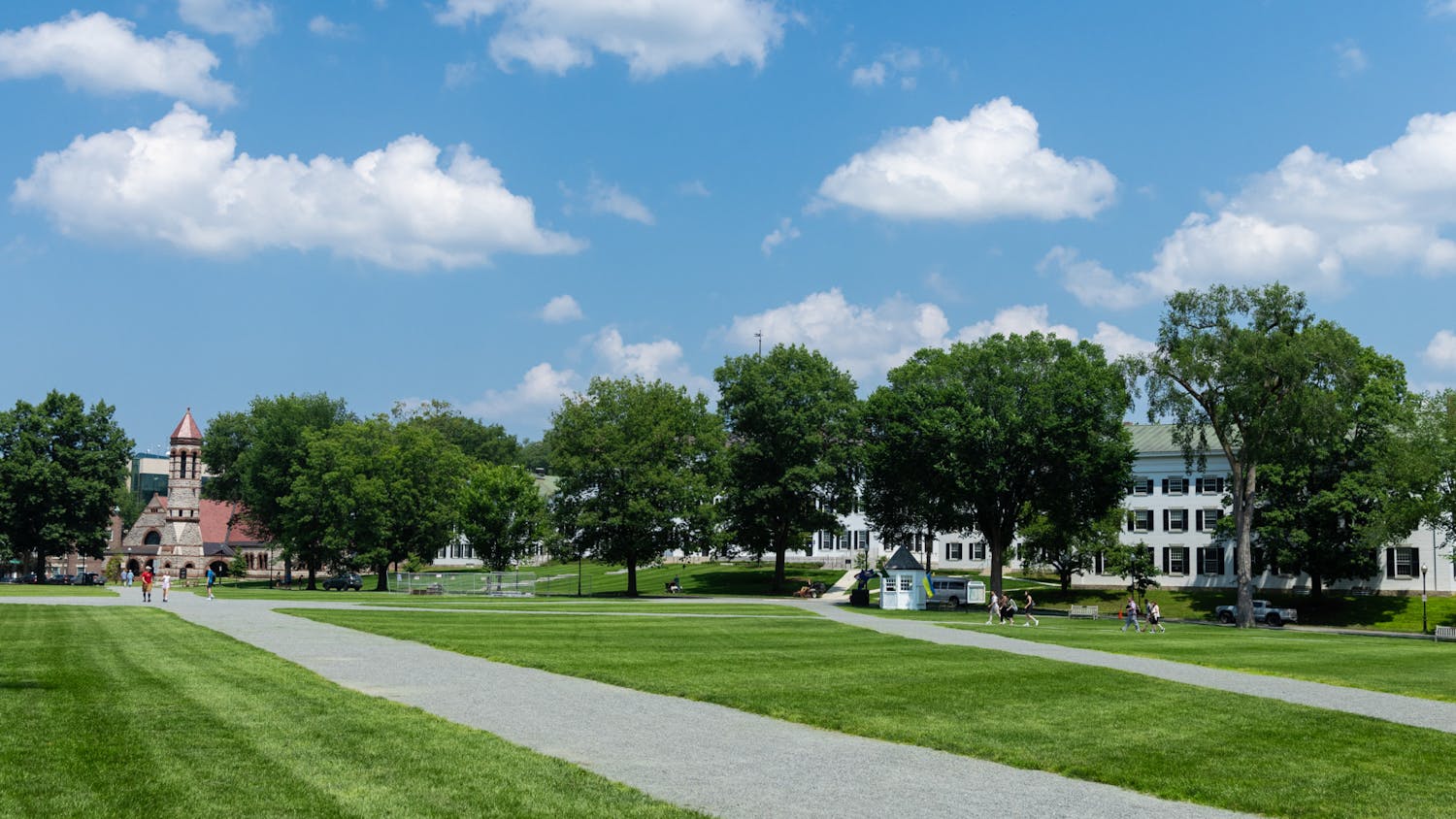From May 2 to 4, Star Trek actor George Takei visited campus through the Montgomery Fellows program. The actor participated in several events, including a fireside chat with the Dartmouth Asian Pacific American Alumni Association and a talk at the Hanover Inn titled “From Internment to Stardom.” According to the Montgomery Fellows program’s website, the fellowship aims “to bring outstanding luminaries from the academic world as well as from non-academic spheres to campus.” The Dartmouth spoke to Takei about his acting career, background and role as a Montgomery Fellow.
What is your role as a Montgomery Fellow?
GT: I feel very honored. I was invited to speak about the internment of Japanese Americans, which is something that I consider my legacy because it’s too little-known today. Despite many history books that have been written and many historians who teach it at the university level, there are so many Americans who don’t know that egregious chapter of American history. Because of our race — because we looked like the people who bombed Pearl Harbor — there was a wild, rampant hysteria.
Japanese Americans were yelled at and attacked on the streets. Graffiti began appearing on Japanese American businesses, homes and cars. My father’s car had three letters painted on it in red: J-A-P. The government came down with a curfew. Japanese Americans had to be home by 8 p.m. and stay home until 6 a.m. If you were caught out at night, you were immediately arrested and thrown into jail. Our bank accounts were frozen. Our money was drained out. The government took it. Most Japanese Americans lost their life savings by the freezing of our bank accounts. It was an outrage. It’s this kind of history that Americans need to know.
How have your background and childhood experiences — particularly, your internment during World War II — impacted your acting career?
GT: The kinds of roles that existed when I started out in the business in the late 1950s were very limited, very stereotypical and very unattractive. We had to be salespeople for much more humanized kinds of opportunities and ultimately advocate for writers who shared our perspective. Gene Roddenberry was an extraordinary example of that. Visionary and idealistic, he created a science fiction show where the story took place in the 23rd century. He created a society that valued diversity, recognizing that as the strength of the Starship Enterprise. You saw that in the makeup of the leadership crew: a North American as the captain, a European engineer, an African American woman and an Asian character who was the helmsman of the ship.
After initially studying architecture at the University of California, Berkeley, you transferred to the University of California, Los Angeles, where you began pursuing theater. What inspired you to shift toward acting?
GT: Like the fact that I’m gay, I was born with that passion for acting. I remember in imprisonment, they periodically showed us Hollywood films. I remember seeing “The Hunchback of Notre Dame” with Charles Laughton, but they also showed us films from Japan — samurai movies — that were imported before the war.
My passion grew within me as I grew up. After the war was over, my father bought us a portable radio and I discovered radio drama. We were out of prison, but society still hated us. The only place we could find to live was on Skid Row, and this radio transported me out of Skid Row away into the world of Manhattan, with gangbuster sirens going in the big city at night, or into cowboy shows with galloping horses.
Who would you consider to be your biggest role models, both professionally and personally?
GT: I don’t know the names of those Japanese actors that I saw while we were in the prison camp, but later on, Toshiro Mifune from so many Samurai movies was my role model. Shortly after being released, my parents took me to see Errol Flynn in “The Adventures of Robin Hood,” and I was absolutely transported to medieval England and Sherwood Forest.
But as I grew older, Richard Burton was the star of the very first feature film I was in, and he was really a charismatic person and a wonderful friend. He had to struggle through a lot of hardship. He was born into a poverty-stricken Welsh coal miner family with 17 siblings. He was number 15 of that many children. Because his mother was sickly, he was raised by his older sister. English was not his first language — it was Welsh. I found him a fascinating person, and I became a fan of his. He was a Shakespeare actor as well as a wonderful movie star.
As both a devout Buddhist and a member of the LBGTQ+ community, how have these two identities intersected in your life?
GT: Buddhism accepts the reality of life in many ways — like the Starship Enterprise. The world is full of diversity. Selecting and ranking that diversity and suppressing others is a human creation, and that’s our weakness. Working toward tapping into the diversity and variety of people that can contribute to making life a better situation is something that’s still going on, particularly on college campuses.
What do you see as the most pressing challenges facing Hollywood and the entertainment industry in the 21st century?
GT: Change is constant, and technology is rapidly changing. Hollywood is no longer Hollywood. It’s international. Storytelling is now told by high tech, and how it is disseminated and consumed is changing dramatically. How it is created has also changed dramatically. There’s no longer Hollywood. It’s all over the world, and a different vantage point is coming from that diversity, from Indian films, to Eastern European films, to Asian films of different cultures.
This interview has been edited for clarity and length.




